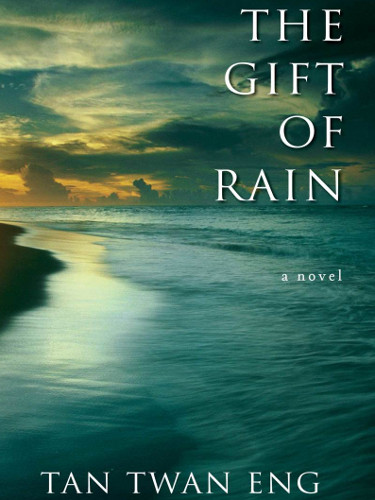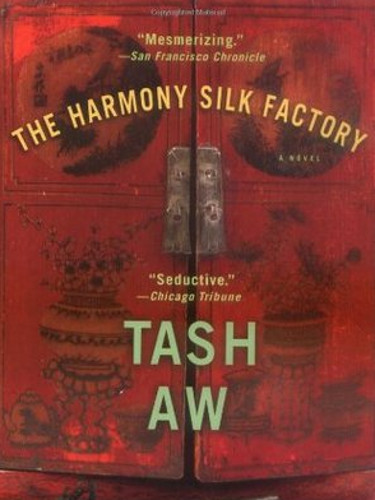
"The Garden of Evening Mists" is a novel recently adapted to a critically acclaimed film. |
Not all the best movies come from an original story. Movies have always looked to other sources to provide the framework of what to tell, and it is in the artistry of how they are told that makes them some of our most beloved cinematic classics. Novels are certainly one source that has been a favourite well among filmmakers to come up with stories to tell, and often the biggest challenge for these filmmakers is to translate what's read on the page to be seen on a screen.
Our filmmakers haven't truly shied away from adapting novels. Although there have been varied successes with adapting the novels like "Tombiruo" and "Ombak Rindu", it is a sign that we have not fully utilise novels as a source of inspiration. That is a shame, as Malaysia has been producing some noteworthy novelists who have gained as much, if not more, recognition as our filmmakers who have gone on to win awards around the world, writing about our uniquely Malaysian experiences and stories to a receptive world audience.
However, with the recent adaptation of "The Garden of Evening Mists" by Tan Twan Eng, and the Netflix making of Yangsze Choo's "Ghost Bride" into a mini-series, we hope to see the potential of Malaysian novels being brought on to the screen (big or small) and plug a gap that our filmmakers may be struggling with.
So, if there are any studio executives looking for material to mine for the next big Malaysian hit, here are some recent Malaysian novels that we think would provide the substance for a hit.
The Gift of Rain
 |
With Tan Twan Eng getting all the attention for "The Garden of Evening Mists", we think it's best to start off the list with more works of his. "The Gift of Rain" is Tan's debut novel and precedes "Garden of Evening Mists", set in the similar time period around World War II and the Japanese occupation. Instead of a local Chinese protagonist, "The Gift of Rain" centers on Philip Hutton, the son of a British man and his second Chinese wife. Living in Penang, Hutton befriends a Japanese diplomat who becomes his akido teacher, and as war breaks out, Hutton is forced to choose which side he would remain loyal to. "The Gift of Rain" puts a harder spotlight at life during the Japanese occupation and the difficult choices that were made to survive, when some of the darkest war atrocities were committed. This is even further complicated by Hutton's own mixed heritage of a colonist and relationship with the aggressors. With themes of love, loyalty and living found in "The Gift of Rain", it is one story that is worth being told, if it was not also longlisted for the Man Booker Prize in 2007.
The Harmony Silk Factory
 |
Predating "The Gift of Rain", "The Harmony of Silk Factory" is another novel that is set during around the colonial period of British-Malaya and the Japanese occupation, written by Tash Aw and was also longlisted for the Man Booker Prize in 2005. While similar to Tan's in its setting, Tash takes on a more historical approach in his first novel, even resorting to making fictionalised characters based off real people. The novel tells of Johnny Lim, a textile business man who marries the daughter of a tin-tycoon, and has a life-changing honeymoon at the Seven Maidens island. As Malaya is invaded and his shop burned down, Johnny opens the titular silk factory and continues his life through its ups and downs. While we suspect that stories during a war time would be a favourite among filmmakers and writers, but "The Harmony of Silk Factory" provides some additional challenges to filmmakers with its non-linear structure that would be a good test for filmmakers to weave a compelling and coherent story, despite its structure.
The Rice Mother
Born in Ceylon and married to Malaya when she was 14, what was promised to be a comfortable life in a strange land for Lakshimi became one that is filled with hardships of a migrant mother through the history of Malaya to Malaysia. Rani Manicka's "The Rice Mother" which won a Commonwealth Writers Prize in 2003, offers a unique perspective and experience that can only be told by a first-generation Malaysian. First are the fears of being a part of a diaspora sent to a foreign land that we would call home, and from a minority voice of the Ceylonese community and how their fate has changed since. Although it does go through the fires of World War II, "The Rice Mother" provides abundant fodder for a multi-generational story that transcends through life experiences and firmly belongs to the seeds of a Malaysian life.
The Woman Who Breathed Two Worlds / When the Future Comes Too Soon
Another uniquely Malaysian minority is the Baba Nyonya. "The Woman Who Breathed Two Worlds" and "When the Future Comes Too Soon" by Selina Siak puts their experiences into words, and explores them through the colonial and Japanese times. From a matriarch who has to struggle with passing down the rich and flavorful traditions to a modernising younger generation, to the resilient choices one has to make to protect one's family during hard times, both books have the potential for a Malaysian epic that is steeped in historical and cultural appeals that faces different challenges both at home and from abroad.
Salina
Moving away from our colonial past (British or otherwise), "Salina" is set in the 1950s, with the titular Malay girl leaving her kampung to work as an escort in Singapore. Capturing the themes of poverty, moral dissolution in urban areas and the political upheaval of post-war peninsular, a film adaptation of "Salina" would be as challenging to adapt as the novel did face some controversy, when it had to tone down the depictions of prostitution. However, we think this list may not be complete without a fiction work from our national literature laureate, A. Samad Said.
The Weight of Our Sky
One significant historical moment after our independence is the racial riots of 1969. When 16-year-old Melati is separated from her mother as the worst fighting between the races occur, she has to depend on a Chinese boy and her hidden powers to be reunited. Although it takes great courage to set a story in one of our nation's most divisive moments, Hanna Alkaf's faces it head-on depicting racism, violence, death, with a dash of the supernatural, making it an interesting young adult to adapt for a film adaptation.
Once We Were There
Malaysian stories don't end in the past as our society continues to evolve and face different societal challenges. Entering into the 90s, the Reformasi movement becomes the setting for this debut novel of Bernice Chauly. Following a mother and journalist who is living through the political upturn, her life goes through a traumatic upturn when her daughter is kidnapped and leads her down some dark secrets in the capital. A film adaptation of Chauly's heart-breaking mix of child trafficking and unstable politics of the time would have to rely on delivering the grim and the grit.
KL Noir Series
Delving deeper into grittier and darker stories set in Malaysia, the KL Noir series from Buku Fixi has collected these short stories written by Malaysian authors. Collected into four volumes corresponding to the national colours, the KL Noir series has a wide range of stories covering from gangsters to police brutality. We can't see why is this not a gold mine of stories that can be made into a feature length the likes of "One Two Jaga" or "Fly By Night" or into short film anthologies like "Kolumpo". We wouldn't be surprised if there's any cross pollination with Amir Muhammad's publishing arm with his filmmaking outfit; Kuman Pictures.
The Sum of Our Follies
Set in a fictional town of Lubok Sayong, "The Sum of Our Follies" by Shih Li Kow is a debut novel that is a deep exploration of a typical sleepy town of Malaysia. Quiet and intimate, filled with colourful characters who are everyday people going about their own mundane businesses, and magnifying on the little details that make their day livelier, it is a meditation on the hometowns we leave behind to make a living in the big cities. Clearly, that sentiment has resonated with readers within and without Malaysia to win the Prix du Premier Roman Etranger from France in 2018, and would require a director who knows how to embrace the long and silent takes of life for its film adaptation.
Cinema Online, 28 January 2020